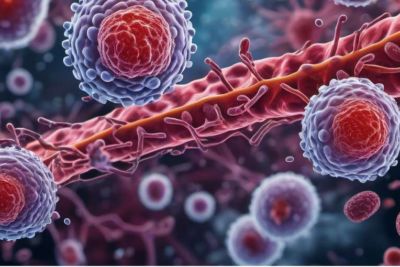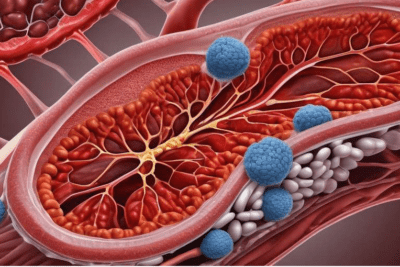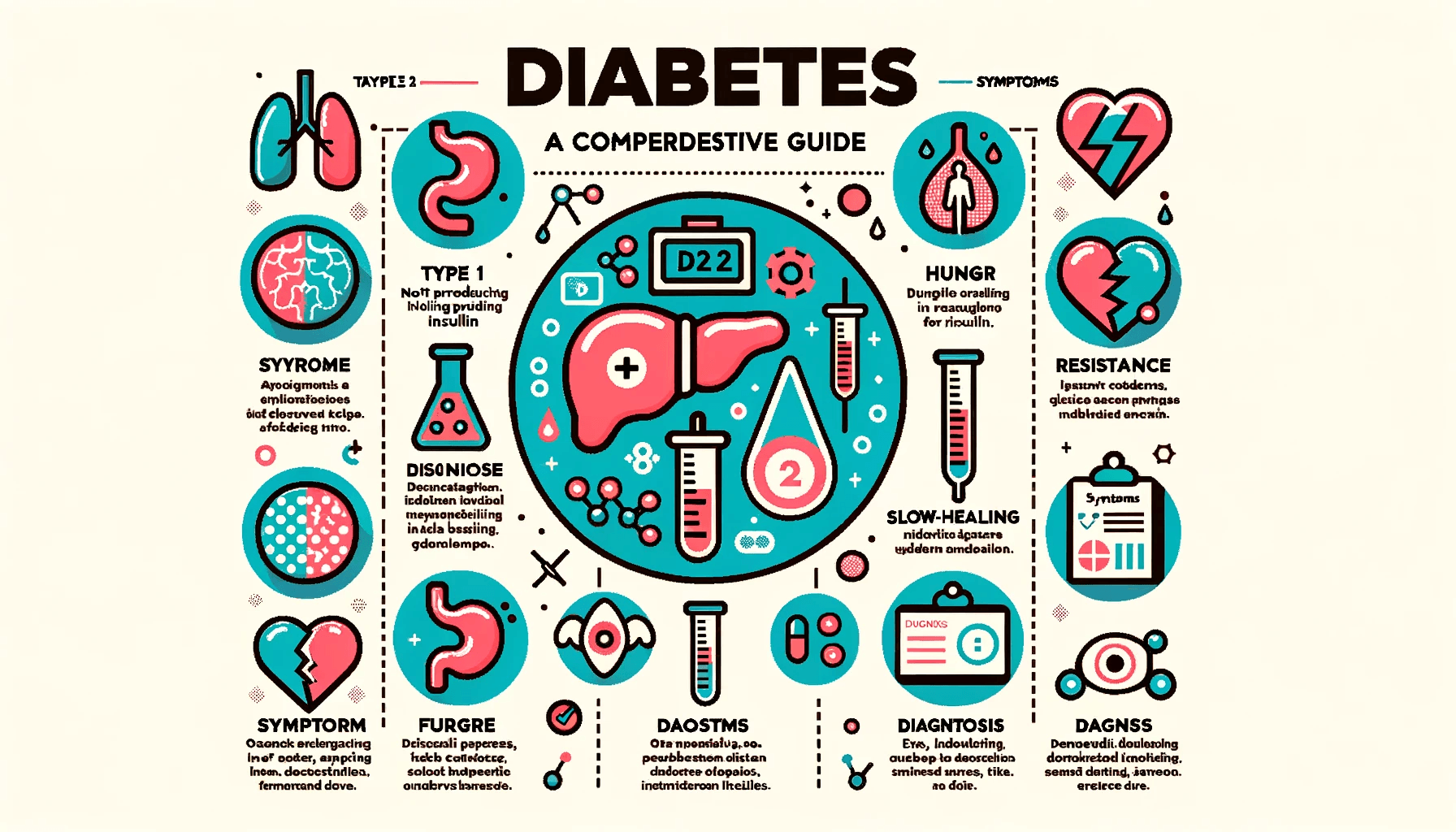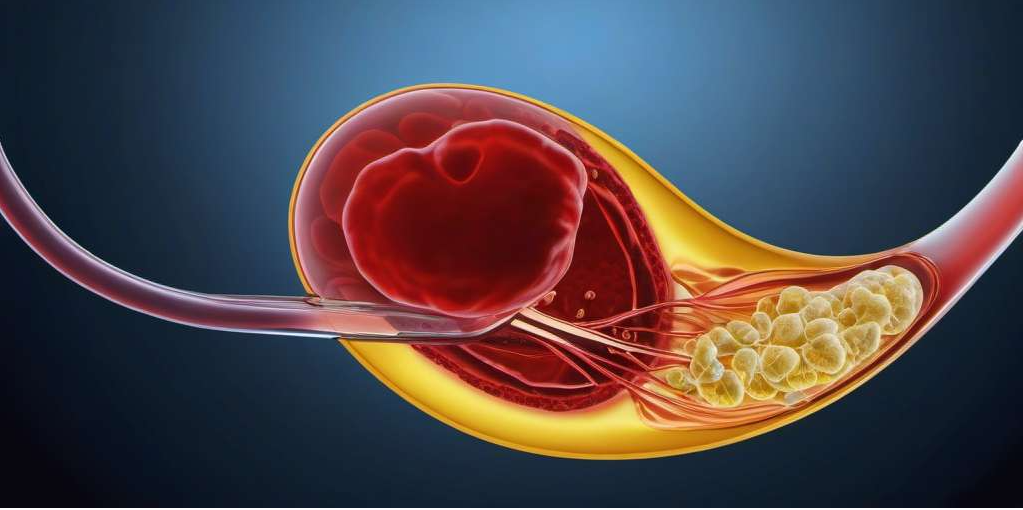
Type 1 Diabetes often leads to frequent urination due to high blood sugar levels. The excess glucose in the blood gets eliminated through the urine, resulting in increased urination and thirst. Managing blood sugar levels and seeking medical advice are crucial for individuals with Type 1 Diabetes. Early detection and treatment can prevent complications associated with this condition.
🔍 Seeking a breakthrough in Type 2 Diabetes management?
Discover our expert insights and innovative approaches on ‘How to Cure Diabetes’.
Click to transform your health journey today!










What you\'ll find in this article?
- Understanding Type 1 Diabetes
- Effects of High Blood Sugar
- Managing Type 1 Diabetes
- Complications of Untreated Type 1 Diabetes
- Preventing Type 1 Diabetes Complications
- Living with Type 1 Diabetes
-
FAQs about Type 1 Diabetes and Frequent Urination
- What Causes Frequent Urination in Type 1 Diabetes?
- How Is Frequent Urination Linked to Blood Sugar Levels?
- Can Frequent Urination Be Prevented or Managed?
- When Should I Seek Medical Help for Frequent Urination?
- What Are the Potential Complications of Untreated Frequent Urination in Type 1 Diabetes?
- How Does Type 1 Diabetes Treatment Impact Frequent Urination?
- Are There Alternative Therapies for Managing Frequent Urination in Type 1 Diabetes?
- How Can Lifestyle Changes Help with Frequent Urination Management?
Understanding Type 1 Diabetes
Type 1 Diabetes is a chronic condition that affects the body's ability to regulate blood sugar levels. It is characterized by the immune system attacking the insulin-producing cells in the pancreas, leading to insulin deficiency.
Definition and Symptoms
People with Type 1 Diabetes often experience symptoms such as excessive thirst, frequent urination, fatigue, and unexplained weight loss. The condition requires lifelong management through insulin therapy and monitoring of blood sugar levels.
Causes and Risk Factors
The exact cause of Type 1 Diabetes is not fully understood, but it is believed to involve a combination of genetic and environmental factors. Risk factors for the condition include family history, autoimmune conditions, and certain viruses.
Diagnosis and Testing
Diagnosing Type 1 Diabetes involves blood tests to measure glucose levels, as well as other tests to assess insulin production and immune system activity. Early diagnosis is crucial to prevent complications and begin appropriate treatment.
Effects of High Blood Sugar
Explore our specialized services in diabetes care 🌟.
From personalized diet plans to effective exercise routines, we have what you need to take control of Type 2 Diabetes.
Visit our services page now!
High blood sugar levels in individuals with Type 1 Diabetes can lead to various effects on the body. These effects can impact different systems and organs, causing symptoms and complications that require careful management and treatment.
Frequent Urination
One of the primary effects of high blood sugar in Type 1 Diabetes is frequent urination. The excess glucose in the blood gets filtered by the kidneys, leading to an increased volume of urine production. This constant need to urinate can be disruptive and uncomfortable for individuals, affecting their daily activities and quality of life.
Excessive Thirst
Excessive thirst is another common effect of high blood sugar in Type 1 Diabetes. The body tries to eliminate the excess glucose through urine, resulting in dehydration and increased thirst. This constant need for fluids can lead to frequent drinking and can exacerbate the cycle of frequent urination.
Other Urinary Symptoms
In addition to frequent urination, high blood sugar levels can cause other urinary symptoms in individuals with Type 1 Diabetes. These symptoms may include a sweet or unusual odor in the urine, increased urine production at night (nocturia), or a higher susceptibility to urinary tract infections due to the presence of excess glucose in the urine.
Managing Type 1 Diabetes
Insulin Therapy
Therapy is a crucial aspect of managing type 1 diabetes. Insulin helps regulate blood sugar levels by facilitating the uptake of glucose by cells for energy production. Different types of insulin, such as rapid-acting, short-acting, intermediate-acting, and long-acting, may be prescribed depending on individual needs.
Benefits of Insulin Therapy:
- Controls blood sugar levels
- Prevents complications of high blood sugar
- Improves energy levels
Blood Sugar Monitoring
Regular monitoring of blood sugar levels is essential to ensure optimal diabetes management. Continuous glucose monitoring devices and blood glucose meters are commonly used to track blood sugar levels throughout the day. Regular monitoring helps individuals adjust insulin doses, dietary choices, and physical activity levels to maintain stable blood sugar levels.
Key Aspects of Blood Sugar Monitoring:
- Checking blood sugar before and after meals
- Tracking blood sugar levels during physical activity
- Monitoring blood sugar overnight
Lifestyle Changes
Adopting healthy lifestyle habits plays a significant role in managing type 1 diabetes effectively. A balanced diet rich in fruits, vegetables, whole grains, and lean proteins can help stabilize blood sugar levels. Regular exercise, stress management techniques, and adequate sleep are also crucial for overall well-being and diabetes control.
Recommended Lifestyle Changes:
- Engage in regular physical activity
- Limit intake of sugary and processed foods
- Stay hydrated with water
Complications of Untreated Type 1 Diabetes
Kidney Issues
Untreated type 1 diabetes can lead to kidney problems, including diabetic nephropathy. This condition affects the kidneys' ability to filter waste from the blood, resulting in an increased risk of kidney failure if left uncontrolled. Early detection and management of blood sugar levels are crucial to prevent or slow down the progression of kidney issues.
Nerve Damage
Nerve damage, known as diabetic neuropathy, is a common complication of untreated type 1 diabetes. This condition can manifest as tingling, numbness, or pain in the extremities, as well as digestive issues or sexual dysfunction. Proper blood sugar control and regular monitoring are key in preventing or delaying nerve damage.
Eye Problems
Untreated type 1 diabetes can also lead to eye complications, such as diabetic retinopathy, which affects the blood vessels in the retina. This condition can result in vision problems and even blindness if left unchecked. Monitoring blood sugar levels, maintaining a healthy lifestyle, and seeking regular eye exams are essential in preventing and managing eye issues associated with diabetes.
Preventing Type 1 Diabetes Complications
Healthy Diet and Exercise
Eating a balanced diet rich in fruits, vegetables, whole grains, and lean proteins can help manage blood sugar levels in type 1 diabetes. Regular physical activity is also crucial, as it can improve insulin sensitivity and overall health.
- Include a variety of nutrients in your diet to support overall health.
- Aim for at least 30 minutes of moderate exercise most days of the week.
Regular Medical Check-ups
Check-ups with your healthcare provider are essential for monitoring blood sugar levels, assessing complications, and adjusting treatment as needed. These appointments help ensure you are effectively managing your diabetes.
- Make and keep appointments for blood tests and other necessary tests.
- Discuss any concerns or changes in symptoms with your healthcare team.
Education and Support
Education about type 1 diabetes and its management is key to preventing complications. Support groups and resources can provide valuable information, emotional support, and strategies for coping with the challenges of living with diabetes.
- Attend diabetes education classes to learn more about your condition.
- Connect with others living with type 1 diabetes for support and shared experiences.
Living with Type 1 Diabetes
Living with Type 1 Diabetes requires commitment and lifestyle adjustments to manage the condition effectively. Here are some essential aspects to consider:
Coping Strategies
- Stay informed about diabetes management techniques
- Seek support from friends, family, and healthcare professionals
- Practice stress-reducing activities such as meditation or yoga
Mental Health Support
- Consult with a mental health professional if needed
- Join diabetes support groups to connect with others facing similar challenges
- Stay positive and address any concerns or fears about the condition
Community Resources
- Explore local diabetes education programs and workshops
- Utilize online resources for up-to-date information and support
- Participate in diabetes awareness events and fundraisers
FAQs about Type 1 Diabetes and Frequent Urination
What Causes Frequent Urination in Type 1 Diabetes?
Frequent urination in Type 1 Diabetes is primarily caused by high blood sugar levels, leading to excess glucose in the kidneys, which is then excreted in the urine. This process results in increased urine production and the need to urinate more frequently.
How Is Frequent Urination Linked to Blood Sugar Levels?
The relationship between frequent urination and blood sugar levels in Type 1 Diabetes is direct. Elevated blood sugar levels cause the kidneys to work harder to filter and remove the excess glucose. As a result, more water is drawn into the urine, leading to increased volume and frequency of urination.
Can Frequent Urination Be Prevented or Managed?
While frequent urination is a common symptom of Type 1 Diabetes, managing blood sugar levels through insulin therapy, dietary modifications, and regular physical activity can help reduce this symptom. Monitoring blood sugar levels closely and staying hydrated are also essential for managing frequent urination.
When Should I Seek Medical Help for Frequent Urination?
If you are experiencing persistent or severe frequent urination, it is important to consult a healthcare provider. This symptom could indicate poorly controlled blood sugar levels or potential complications related to Type 1 Diabetes that require medical attention.
What Are the Potential Complications of Untreated Frequent Urination in Type 1 Diabetes?
Untreated frequent urination in Type 1 Diabetes can lead to dehydration, electrolyte imbalances, and urinary tract infections. Chronic high blood sugar levels can also result in kidney damage and other serious health issues if left unaddressed.
How Does Type 1 Diabetes Treatment Impact Frequent Urination?
Effective management of Type 1 Diabetes, including maintaining stable blood sugar levels, can help alleviate frequent urination. Insulin therapy, proper nutrition, and regular monitoring of blood glucose levels play a crucial role in controlling this symptom and reducing its impact on daily life.
Are There Alternative Therapies for Managing Frequent Urination in Type 1 Diabetes?
While traditional medical treatments like insulin therapy are essential for managing Type 1 Diabetes, some individuals may benefit from complementary approaches such as acupuncture, herbal remedies, or relaxation techniques to support overall well-being. It is important to discuss any alternative therapies with a healthcare provider before incorporating them into your diabetes management plan.
How Can Lifestyle Changes Help with Frequent Urination Management?
Making lifestyle changes such as adopting a balanced diet, engaging in regular physical activity, managing stress levels, and staying hydrated can all contribute to better management of frequent urination in Type 1 Diabetes. These lifestyle modifications, along with medical treatments, form a comprehensive approach to diabetes care.
✨ Other articles you might be interested in:
- Increased Thirst Type 1 Diabetes: Symptoms and Treatment in the US
- Type 1 Diabetes Extreme Hunger: Causes and Solutions
- Unexplained Weight Loss Type 1 Diabetes: Causes and Solutions
- Fatigue Weakness Type 1 Diabetes: Understanding the Impact
- Blurred Vision in Type 1 Diabetes: Key Information and Tips for Managing



